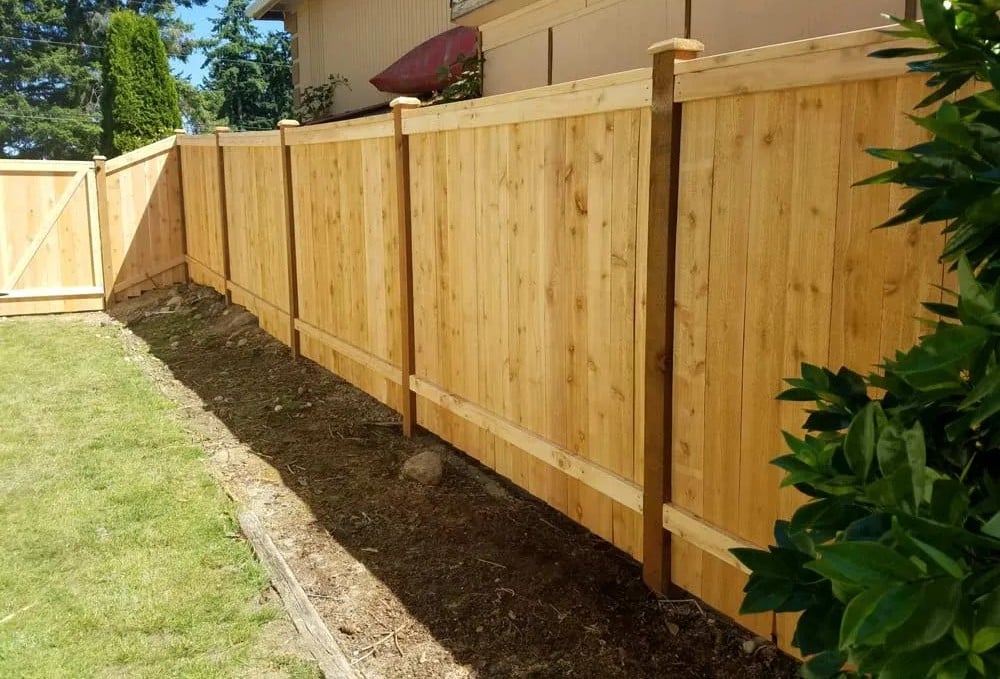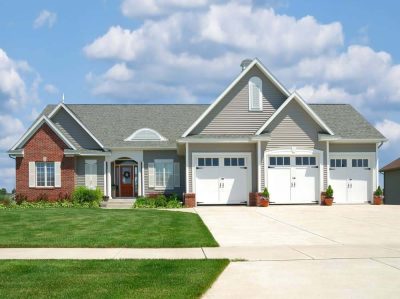
When it comes to choosing the perfect fence for your home, the decision often boils down to two popular contenders: vinyl and wood. Each material brings its own set of advantages and disadvantages to the table, making the choice a complex one for homeowners. In this comprehensive guide, we’ll delve into the key factors to consider when deciding between a vinyl fence and a wood fence, helping you make an informed decision that aligns with your aesthetic preferences, budget, and maintenance capabilities. If you’re looking for expert advice and installation, don’t hesitate to search for a reputable fence company near me to guide you through the process.
Vinyl Fencing: Low-Maintenance Modernity
One of the most attractive features of vinyl fencing is its exceptional durability. Vinyl is resistant to rot, insects, and harsh weather conditions, ensuring your fence remains structurally sound and visually appealing for years to come. Unlike wood, vinyl won’t warp, crack, or splinter, making it a low-maintenance option that can withstand the test of time.
Vinyl fencing offers a wide range of styles, colors, and textures to complement any home’s architectural style. From classic picket fences to privacy panels and everything in between, vinyl’s versatility allows you to create a fence that perfectly suits your aesthetic preferences. Additionally, vinyl’s color is infused throughout the material, eliminating the need for repainting or staining.
While the initial investment in a vinyl fence may be slightly higher than wood, its long-term cost-effectiveness is undeniable. With minimal maintenance requirements and a long lifespan, vinyl fencing can save you money in the long run on repairs, replacements, and upkeep. Vinyl’s longevity and recyclability contribute to its eco-friendliness. It doesn’t require the harvesting of trees, and at the end of its lifespan, it can be recycled into new products.
Wood Fencing: Timeless Natural Beauty
Wood’s natural beauty and warmth are unmatched, creating a classic look that blends seamlessly into any landscape. The rich textures and grains of wood offer a unique charm that many homeowners find irresistible. Whether you choose a traditional wood like cedar or a more exotic option, a wood fence exudes a timeless elegance that complements any architectural style.
Wood offers unparalleled flexibility in design and customization. You can stain or paint it to match your home’s exterior, or let it weather naturally for a rustic look. Additionally, wood can be easily shaped and carved to create unique patterns and designs, allowing you to personalize your fence and make it a true reflection of your style.
In general, wood fencing tends to be more affordable upfront than vinyl. This makes it an attractive option for budget-conscious homeowners who want to enhance their property without breaking the bank. Wood is a renewable resource, making it a more environmentally friendly choice than some synthetic materials.
The Showdown: Key Considerations
Vinyl’s low-maintenance nature is a major advantage over wood. While wood requires regular cleaning, staining, and sealing to protect it from the elements and prevent rot and insect damage, vinyl simply needs an occasional wash with soap and water. If you’re looking for a hassle-free fencing option, vinyl is the clear winner in this category.
Both vinyl and wood can offer long-lasting performance, but their lifespans vary depending on the specific type of wood and the quality of installation. A well-maintained wood fence, such as one made from cedar, can last for 20 years or more, addressing the common query of “how long does a cedar fence last“. On the other hand, vinyl fences are known for their exceptional durability and can last upwards of 30 years with minimal maintenance.
As mentioned earlier, wood fencing typically has a lower upfront cost than vinyl. However, it’s important to factor in the long-term costs of maintenance and potential repairs or replacements when making your decision. While vinyl may require a larger initial investment, its minimal maintenance requirements can save you money in the long run.
The choice between vinyl and wood ultimately comes down to personal preference. Wood offers a natural beauty and warmth that many homeowners find appealing, while vinyl provides a clean, modern look with a wide range of color and style options. Consider the architectural style of your home and your overall landscaping goals when making your decision.
Your local climate and environmental conditions should also influence your decision. If you live in an area with harsh weather conditions, such as extreme heat, cold, or humidity, vinyl’s durability and resistance to the elements may make it a more suitable choice. On the other hand, if you’re in a milder climate, wood’s natural beauty and affordability may be more appealing.
Ultimately, the best fencing material for your home depends on your individual needs and priorities. If you prioritize low maintenance, durability, and a modern aesthetic, vinyl may be the ideal choice. If you prefer the natural beauty, warmth, and customization options of wood, and you’re willing to invest the time and effort in maintenance, a wood fence like cedar, which can last for decades with proper care (you can always check with a “cedar fence company near me” for lifespan estimates), could be the perfect fit.
Conclusion
Whether you opt for the sleek modernity of vinyl or the timeless charm of wood, a well-chosen fence can enhance your home’s beauty, privacy, and security. By carefully considering your budget, maintenance preferences, aesthetic goals, and local climate, you can make an informed decision that will bring you years of enjoyment and satisfaction. If you’re still feeling uncertain about which path to take, don’t hesitate to seek professional guidance. A reputable cedar fence company near me can provide valuable insights, offer personalized recommendations based on your specific needs and budget, and ensure a seamless installation process. Their expertise can help you navigate the complexities of fence selection and ensure that your final decision is one you’ll be happy with for many years. After all, a fence is a significant investment, and making the right choice will pay dividends in both beauty and functionality for your home.








